Peugeot 408 vs Mitsubishi ASX - Differences and prices compared
Compare performance (225 HP vs 158 HP), boot space and price (35100 £ vs 21400 £ ) at a glance. Find out which car is the better choice for you – Peugeot 408 or Mitsubishi ASX?
Costs and Efficiency:
Price and efficiency are key factors when choosing a car – and this is often where the real differences emerge.
Mitsubishi ASX has a decisively advantage in terms of price – it starts at 21400 £ , while the Peugeot 408 costs 35100 £ . That’s a price difference of around 13697 £.
Fuel consumption also shows a difference: Peugeot 408 manages with 2.70 L and is therefore significantly more efficient than the Mitsubishi ASX with 4.40 L. The difference is about 1.70 L per 100 km.
Engine and Performance:
Power, torque and acceleration are the classic benchmarks for car enthusiasts – and here, some clear differences start to show.
When it comes to engine power, the Peugeot 408 has a noticeable edge – offering 225 HP compared to 158 HP. That’s roughly 67 HP more horsepower.
In acceleration from 0 to 100 km/h, the Peugeot 408 is evident quicker – completing the sprint in 7.20 s, while the Mitsubishi ASX takes 8.90 s. That’s about 1.70 s faster.
There’s also a difference in torque: Peugeot 408 pulls noticeable stronger with 360 Nm compared to 245 Nm. That’s about 115 Nm difference.
Space and Everyday Use:
Cabin size, boot volume and payload all play a role in everyday practicality. Here, comfort and flexibility make the difference.
Both vehicles offer seating for 5 people.
In curb weight, Mitsubishi ASX is to a small extent lighter – 1296 kg compared to 1544 kg. The difference is around 248 kg.
In terms of boot space, the Peugeot 408 offers slight more room – 536 L compared to 484 L. That’s a difference of about 52 L.
When it comes to payload, Peugeot 408 barely noticeable takes the win – 456 kg compared to 445 kg. That’s a difference of about 11 kg.
Who wins the race in the data check?
The Peugeot 408 is clearly superior overall in the objective data comparison.
This result only shows which model scores more points on paper – not which of the two cars feels right for you.
Costs and Consumption
View detailed analysis
Engine and Performance
View detailed analysis
Dimensions and Body
View detailed analysis
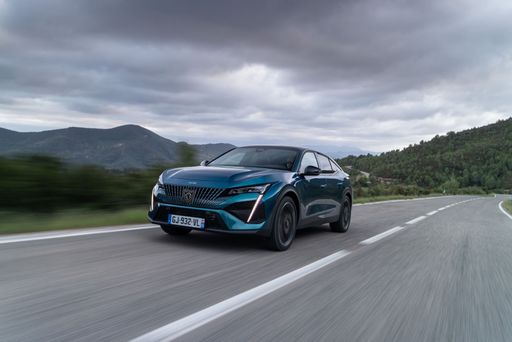
Peugeot 408
Peugeot 408
The Peugeot 408 blends a coupe-like roofline with practical sensibility, delivering striking looks and a surprisingly airy, premium-feeling cabin. On the road it prefers comfort and poise over manic thrills, making it a smart, stylish choice for buyers who want something a bit different from the usual family hatchback.
details
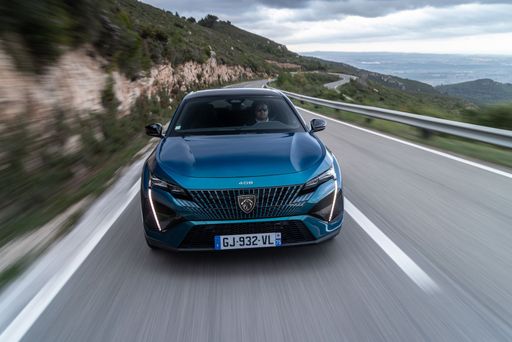
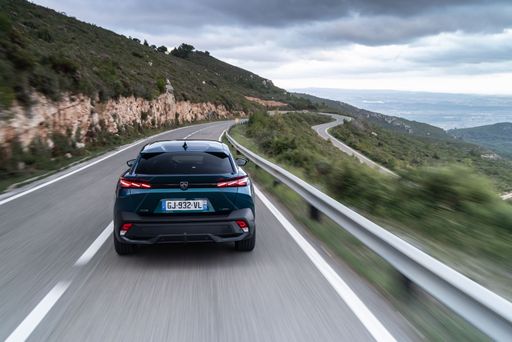
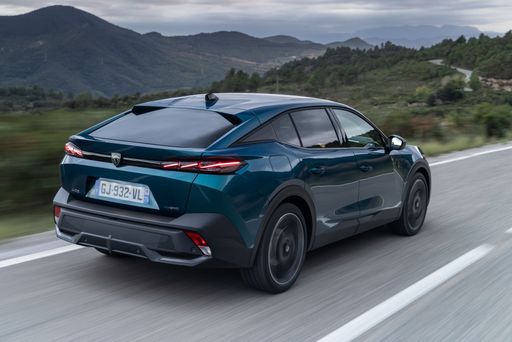
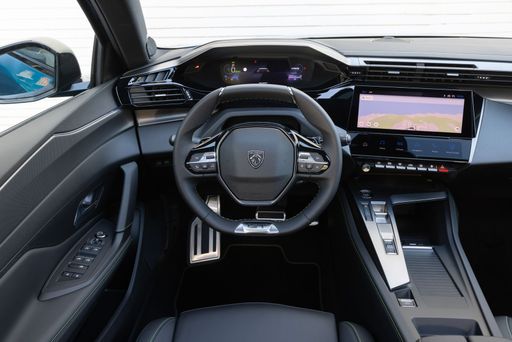
Mitsubishi ASX
The Mitsubishi ASX is a compact crossover that mixes practicality with a no-nonsense personality, making it an easy choice for buyers who want sensible space without the showroom theatrics. It won't set your pulse racing, but its composed ride and user-friendly kit make it a dependable companion for daily errands and weekend escapes — reliable rather than flashy.
details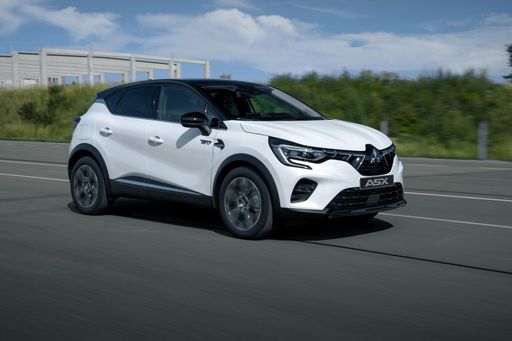
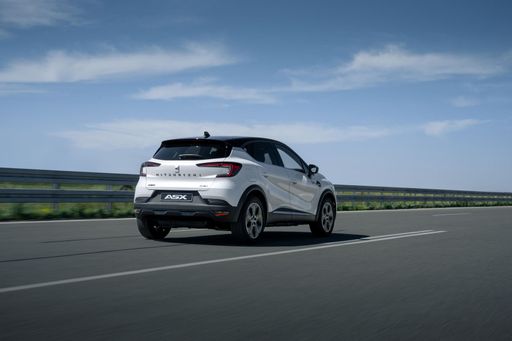

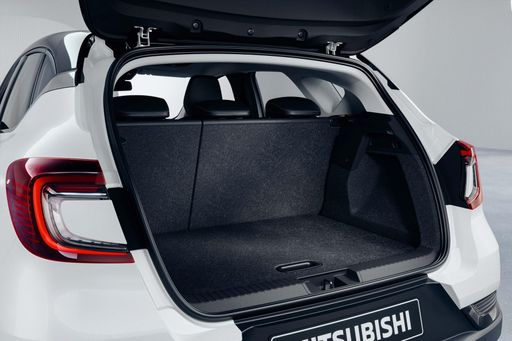
Costs and Consumption |
|
|---|---|
|
Price
35100 - 48000 £
|
Price
21400 - 32500 £
|
|
Consumption L/100km
2.7 - 5.1 L
|
Consumption L/100km
4.4 - 6 L
|
|
Consumption kWh/100km
14.80 kWh
|
Consumption kWh/100km
-
|
|
Electric Range
79 - 455 km
|
Electric Range
-
|
|
Battery Capacity
58.20 kWh
|
Battery Capacity
-
|
|
co2
0 - 114 g/km
|
co2
99 - 137 g/km
|
|
Fuel tank capacity
42 - 52 L
|
Fuel tank capacity
-
|
Dimensions and Body |
|
|---|---|
|
Body Type
SUV
|
Body Type
SUV
|
|
Seats
5
|
Seats
5
|
|
Doors
5
|
Doors
-
|
|
Curb weight
1544 - 1879 kg
|
Curb weight
1296 - 1493 kg
|
|
Trunk capacity
471 - 536 L
|
Trunk capacity
348 - 484 L
|
|
Length
4687 mm
|
Length
-
|
|
Width
1848 mm
|
Width
1797 mm
|
|
Height
1478 mm
|
Height
-
|
|
Max trunk capacity
1528 - 1583 L
|
Max trunk capacity
-
|
|
Payload
371 - 456 kg
|
Payload
397 - 445 kg
|
Engine and Performance |
|
|---|---|
|
Engine Type
Electric, Petrol MHEV, Plugin Hybrid
|
Engine Type
Full Hybrid, Petrol, Petrol MHEV
|
|
Transmission
Automatic
|
Transmission
Automatic, Manuel
|
|
Transmission Detail
Reduction Gearbox, Dual-Clutch Automatic
|
Transmission Detail
Automatic Gearbox, Manual Gearbox, Dual-Clutch Automatic
|
|
Drive Type
Front-Wheel Drive
|
Drive Type
Front-Wheel Drive
|
|
Power HP
145 - 225 HP
|
Power HP
115 - 158 HP
|
|
Acceleration 0-100km/h
7.2 - 9.4 s
|
Acceleration 0-100km/h
8.9 - 12.3 s
|
|
Max Speed
160 - 233 km/h
|
Max Speed
-
|
|
Torque
230 - 360 Nm
|
Torque
190 - 245 Nm
|
|
Number of Cylinders
4
|
Number of Cylinders
3 - 4
|
|
Power kW
107 - 165 kW
|
Power kW
84 - 116 kW
|
|
Engine capacity
1199 - 1598 cm3
|
Engine capacity
1199 - 1789 cm3
|
General |
|
|---|---|
|
Model Year
2024 - 2025
|
Model Year
2025
|
|
CO2 Efficiency Class
A, C, B
|
CO2 Efficiency Class
C, D, E
|
|
Brand
Peugeot
|
Brand
Mitsubishi
|
What drivetrain options does the Peugeot 408 have?
The Peugeot 408 is offered with Front-Wheel Drive.
